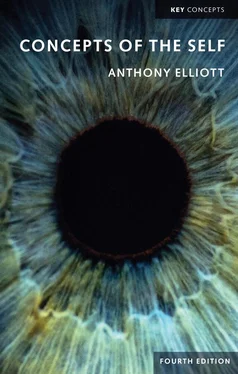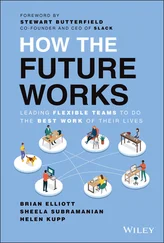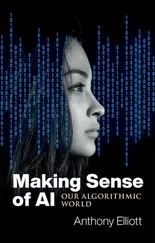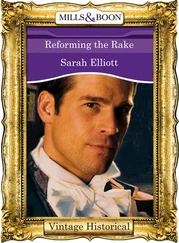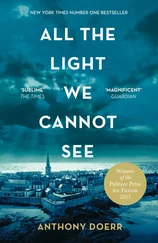For further information on Polity, visit our website: politybooks.com
For Caoimhe
When this book was initially published, some twenty years ago, the topic of the self was considered relatively marginal in mainstream social science. Since that time, the intellectual stock-market ratings of identity and the self have moved increasingly centre-stage, and it has been my good fortune to receive many comments from students and lecturers – in fields such as sociology, political science, cultural and media studies – who have studied this book in order to better grapple with our lives in these times. As I try to demonstrate throughout the book, there is no one disciplinary approach for adequately grasping the complexities of self in the global digital age; on the contrary, only an interdisciplinary approach – the standpoint of social theory – can sufficiently scoop up the complex array of theoretical standpoints (from structuralism to psychoanalysis, feminism to postmodernism) in order to engage concepts of the self that are so fundamental to both public political life and the social sciences and humanities. In this new edition, I have made updates that, wherever possible, report on the latest research advances and political developments. There is also a new chapter on technological innovations in artificial intelligence, robotics and accelerating automation, one of the biggest transformations in the world impacting the self and personal life.
My thanks, as ever, to everyone at Polity Press, in particular John Thompson and especially Jonathan Skerrett for assistance in preparing this fourth edition.
The following people provided invaluable support as I was working on this edition: Anthony Giddens, Gerhard Boomgaarden, Masataka Katagiri, Ralf Blomqvist, Eric Hsu, Ross Boyd, Louis Everuss, Judy Wajcman, John Cash, Atsushi Sawai, Anthony Moran, Carmel Meiklejohn, Kriss McKie, Rina Yamamoto, Takeshi Deguchi, Hideki Endo and Nick Stevenson. I should like to thank Nicola Geraghty, who supported my work on this book across all editions. The book originally appeared around the time of the birth of our daughter Caoimhe, and it always was her book: as I watch her navigate the rich territories of her world, I realize that the book remains hers, more than ever.
Anthony Elliott
Adelaide
With the soothing sound of the BBC sounding from her alarm clock at 6.00 am, Ronda wakes – like many the world over living in expensive cities of the West – to the latest news bulletin streamed on the Internet. Listening to the morning headlines, she asks Siri to check any overnight emails. A high-flying lawyer based in London, Ronda is working at present on a corporate takeover involving both British and American companies – and later in the day will fly to New York for further discussions on the deal. But it’s coffee she needs first. Heading downstairs, she flicks on the LCD TV inbuilt on the smart fridge in her minimalist kitchen and checks the international weather on ITV. Sitting down to coffee and a bagel, she scans social media not only to see what’s going on in ‘her’ world, but also to check comment on the latest financial developments. All of this has taken about fifteen minutes. The city is London, but it might just as easily be Los Angeles, Sydney, Singapore, Athens or Auckland.
Ronda’s morning routine tells us a good deal about our changing world in these early decades of the twenty-first century. Certainly, it tells us about the rise of digital technology in recent times, but also about the changing nature of the self. For the global digital revolution has impacted profoundly on modern societies, and perhaps nowhere more so than in the everyday routines through which individuals forge and sustain a sense of self. Clearly, those like Ronda living in information-rich societies have an enormous degree of choice in accessing news and entertainment through the mass media. This explosion of global communications is crucial to the transformed nature of the self in various ways. First, an individual’s use of mass media – from the digitalization of news and streaming services to social media and virtual personal assistants – is not simply about the gathering of information, however important that might be. It informs – in a deeply symbolic way – our everyday activities and connections with others. What one gleans from the morning news, for example, provides fertile subject matter for various routine interactions in which the self is implicated – from discussions with friends in cafés to dialogue with fellow workers at the office.
Second, an individual who engages with digital media is also caught up in a complicated process of self-definition and consumer identification. Whether one chooses to read The Times , the Daily Mail or the New York Times – and indeed whether one reads the online version or requests a robo-reader to cover the headlines – says a great deal about the relation between the self and broader socioeconomic contexts. People can separate themselves from others – in actual, imagined and virtual ways – through reliance on the cultural status of media products. Consumer identification with media products often functions in a kind of make-believe way – ‘I only read the New York Times ’ – but also profoundly influences the self-presentations of individuals. Indeed, for many people, this kind of brand loyalty is definitional of their ‘ideal self’ – the self that they would like to be.
Third, our routine engagement with the mass media implicates the self in a complex web of social, cultural and economic relationships that span the globe. Thanks to the transnational spread of digital technologies, our media-saturated society has created what the Canadian scholar Marshall McLuhan terms a ‘global village’ – people increasingly define aspects of their self-identity, as well as memories of self, with reference to global media spectacles. In a world of intensive globalization, breaking news almost anywhere in the world is relayed instantaneously by the mass media. Such developments have not only provided for a much more interconnected world, but also redefine aspects of the constitution of the self with reference to other societies and other cultures. Where were you when the news broke of Donald Trump’s election as president of the USA? What were you doing on the morning of 9/11, when news of the planes that brought down the Twin Towers spread across the globe? More and more often, people are coming to define aspects of their self-experience – and particularly memories of the self – with reference to global mega-events. While social analysts still debate the pros and cons of the globalization of the media, there is growing evidence that our televisual world of 24/7 news updates and media spectacles is reshaping the self with postnational consequences. That is to say, the self is increasingly defined with reference to global forces, flows and networks – although whether people choose to embrace or deny such worldwide social transformations on a conscious level is an altogether separate issue.
Finally, the reshaping of the self through engagement with both digital and social media moves us to reflect on contemporary debates about modernity, postmodernism and, in particular, the much contested idea of a ‘speeding-up’ of the world. Some sociologists of the media have argued that today’s quality newspapers – such as the Los Angeles Times or the Guardian – contain as much information as an individual might have encountered over the course of their entire lifetime in a premodern society. This clearly raises issues about ‘information overload’ in modern societies; but it also raises complex questions concerning the self and its navigation of the myriad narratives and kaleidoscopic perspectives available through the mass media today. How do people forge a coherent sense of self against the expansive spread of information available through the mass media? How does the society of information overload impact on processes of self-formation? These are issues that increasingly affect everyone today.
Читать дальше
